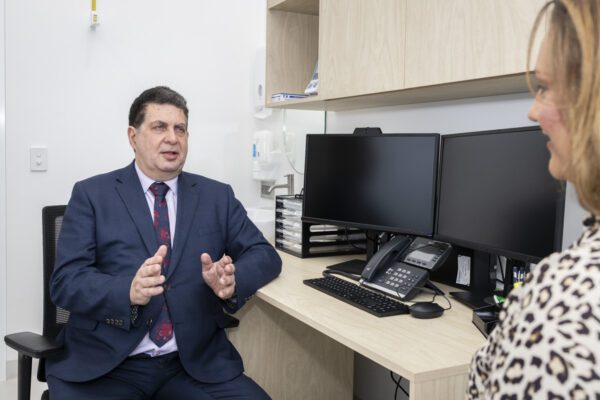Are you or a loved one struggling with feelings of depression, anxiety or irritability? Recent reports suggest poor mental health is widespread throughout Australia at the moment and is set to get worse. Psychologist Peter Hayton suggests an important combat tool lies in the power of positivity.
Contributors: Peter Hayton, Senior Psychologist at The Banyans; and Emily Hill, Communications at The Banyans.
Australians mental health may be “the worst it’s ever been”
It seems more Australians than ever are experiencing the symptoms of depression and anxiety. In a survey of over 1 200 Australians, the ABC reports that “majority of participants registered mild levels of anxiety and depression, and about 30 per cent of people showed moderate to high levels.”
It’s not only serious symptoms of mental illness that are flaring up in light of COVID-19. Another study reflected that 35% of Australians have regularly felt nervous throughout the past 2 weeks, and 42% feel restless. These numbers are up more than 15% from a similar period last year.
Feeling of nervousness and restlessness have increased by over 15%*.
*in the Australian population, compared to same time in 2019. Australian Bureau of Statistics.
Such staggering numbers have lead the Federal government to contribute more than $3 million in additional mental health funding. However, this has brought about public backlash, as some suggest that such mediocre funding is “simply not enough” for the already under-resourced mental health system.
Disastrous start to 2020 creates widespread stress
Peter Hayton is the Senior Psychologist at The Banyans. Referencing bush fires, intense negative political discourse, flooding and now the Coronavirus pandemic, Peter comments that “2020 has been a particularly stressful year for most Australians.”

“Regardless of whether you are directly impacted by the disasters or not, you can be affected by ‘second hand’ experiences of stress, anxiety or trauma,” says Peter.
He suggests that the close temporal proximity of these events to COVID-19 may contribute to many Australians feeling less resilient to the effects of social isolation, financial strain and changes to their lifestyle.

Media sentiment swamping Australians with stress
Peter acknowledges the relationship between negative media exposure and rhetoric on our wellbeing. “In times like these, we can feel like our world is saturated with negativity. It is easy to become overwhelmed with feelings of stress, anxiety and pessimism.”
He notes that “although it is natural to experience negative emotions, especially when very real stressors exist, these feelings can become unhelpful when they are persistent or disrupt our ability to enjoy our everyday lives.”
It has been a particularly stressful year for most Australians.
Peter Hayton
When this starts to occur, Peter reminds us of the need to be intentional with our choices – especially regarding our mindset and exposure to scare-based media reporting.
“It can be easy to fall into the trap of a ‘doom and gloom’ mindset,” Peter comments. “However, with some intentionality and strategic decision making, we can help shift our thoughts towards some of the brighter things in life.”

Positivity combats growing anxiety
Based on a positive psychology or mindfulness-based therapy approach, Peter advocates for the power of positivity in combatting growing mental health concerns in a challenging global environment.
“Positive thinking is a lot more than simply “cheering up”, explains Peter. “It’s a psychological strategy that helps people expand their mental horizons.”
Positive thinking is more than cheering up. It’s about expanding your mental horizons.
Peter Hayton
He suggests that intentional positive activities like mindfulness, gratitude journaling and meditation can help foster a gentle, kind emotional tone – which can be quite different to the external voices we may hear.

He also recommends reshaping your social media feeds to represent alternative tones to the mainstream media. “These outlets can be a helpful reminder that good things are still happening in the world, amongst what seems to be a very distressing and turbulent time,” Peter sympathises.
“One simple positive voice in your media feed can break the circuit of ‘doom and gloom’ thinking,” he says.
The Banyans launches 21 Days of Positivity
Aware of these challenges and committed to providing a positive voice, The Banyans decided to launch 21 Days of Positivity.
Together with CEO Ruth Limkin, Peter hopes that a combination of activity suggestions and motivational quotes will help people remember that a happy and enriching life can continue still.


Join The Banyans 21 Days of Positivity!
Starting May 10, The Banyans is posting 21 daily doses of positivity.
Join us on Facebook and Instagram now to help break the circuit of negative news.
Positivity is not a band-aid for mental health issues
Peter highlights that positive thinking should not be a cover-all-bases solution for those experiencing negative emotions or symptoms of mental illness, like depression or anxiety.
“We are not suggesting that you avoid or suppress negative emotions by slapping on a positivity band-aid,” Peter says. Rather, positive thinking can help you relieve some of the intensity of those experiences, so that you can engage with things from a clearer headspace.

“It’s not about minimising the issues of concern or pretending that these more stressful situations do not exist. It’s about helping you focus on some of the alternative, lighter things so that you are not overwhelmed by stress, worry or fear.”
If you or someone you care about is experiencing severe symptoms or is in danger, reach out for help immediately.









